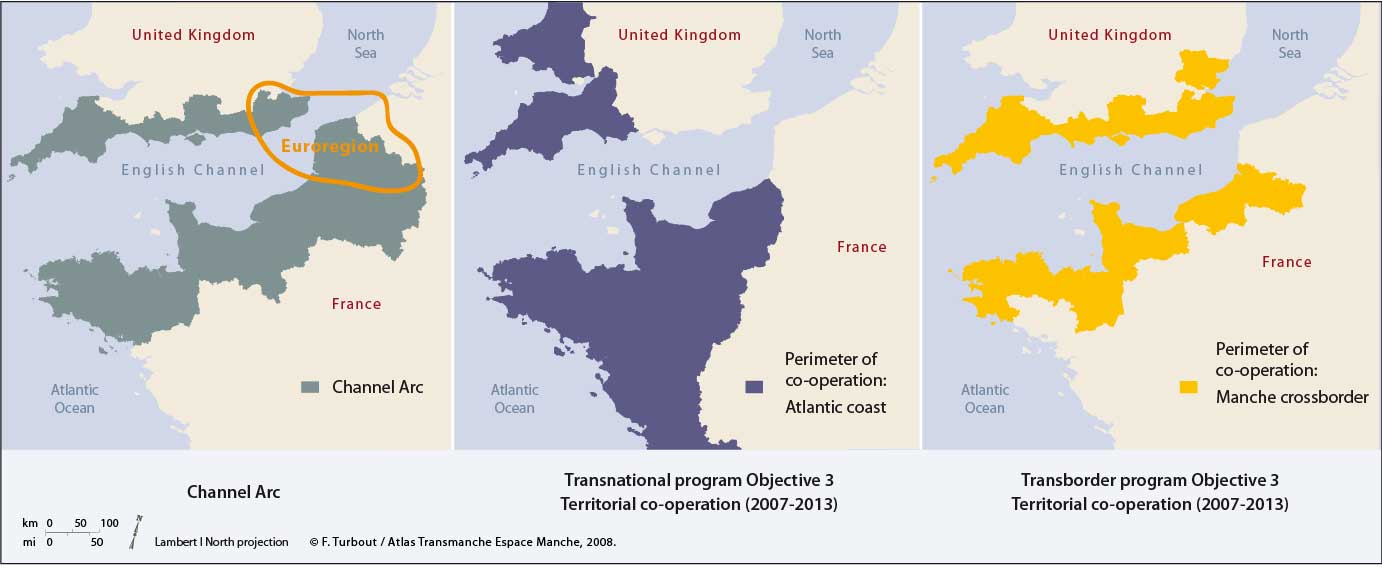

 Cooperation
Cooperation- Programmes Interreg IVA (2007-2013) FR
Cross-Channel cooperation and collaboration has grown and become institutionalised over the last twenty years. Even if the first twinning projects between towns go back to 1968 and the first agreements between local authorities date from 1971, most accords were formalised in the 1990s and at the turn of the century.
Four main stages can be identified. From 1989 to 1993, Interreg I: only the areas of Kent and Nord-Pas-de-Calais are eligible. The programme in question does not include maritime frontiers; however with the Channel Tunnel it is now seen as both a terrestrial and maritime border region.
Between 1992 and 1993, a change in the programme’s rules on eligibility is requested by the elected officials of Upper Normandy and East Sussex within the framework of their own bilateral accord.
1994-1999, Interreg II: on the French side, the eligible zone extends as far as Le Havre; and on the English side includes East Sussex. The Channel area is therefore divided between two zones: one that is eligible (two programmes Transmanche and Rives Manche) and the other non-eligible to the west of Le Havre and Brighton.
2000-2006: the eligible zones do not change but are organised into a single cooperation programme including the departments of Nord, Pas-de-Calais, Somme, Seine-Maritime, the counties of Kent (and Medway CC) and East Sussex (with Brighton CC). The trans-national cooperation ‘Interreg IIIB, North-West Europe’ nevertheless allows member authorities in the ‘Arc Manche’ association to work within a communal framework with European regional policy support: this is the EMDI project which was approved in 2005. During this period, and like their counterparts in the Baltic Sea region, local authorities (Regions, Counties and City Councils) bordering the Channel fought for a further revision of the rules associated with Part A of the European Interreg programme in order to make the whole of the Channel region eligible.
2007: the whole zone becomes eligible under the transfrontier section of the EU Cooperation Objective (new title for Interreg), as part of the North-West Europe Zone. The European Commission creates the first legal instrument enabling cooperation between local government authorities: the European Group of Territorial Cooperation (GECT).
top















